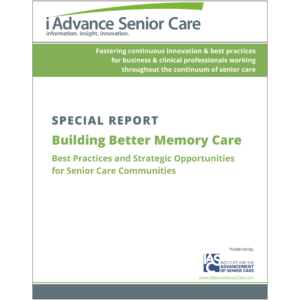Study: Seniors who use Facebook may gain a cognitive boost
For older adults looking to sharpen their mental skills, it might be time to log on to Facebook.
Preliminary research findings from the University of Arizona suggest that men and women older than 65 who learn to use Facebook could see a boost in cognitive function.
Researcher Janelle Wohltmann set out to see whether teaching older adults to use the popular social networking site could help improve their cognitive performance and make them feel more socially connected.
Wohltmann reported that preliminary findings show that older adults, after learning to use Facebook, performed about 25 percent better on tasks designed to measure their ability to continuously monitor and to quickly add or delete the contents of their working memory—a function known in the psychology world as "updating."
Wohltmann facilitated Facebook training for 14 older adults who had either never used the site or used it less than once a month. They were instructed to become Facebook friends only with those in their training group and were asked to post on the site at least once a day.
A second group of 14 non-Facebook using seniors instead was taught to use an online diary site, Penzu.com, in which entries are kept private, with no social sharing component. They were asked to make at least one entry a day, of no more than three to five sentences to emulate the shortness of messages that Facebook users typically post.
The study's third group of 14 was told they were on a "wait-list" for Facebook training, which they never actually completed.
In the follow-ups, those who had learned to use Facebook performed about 25 percent better than they did at the start of the study on tasks designed to measure their mental updating abilities. Participants in the other groups saw no significant change in performance.
"The idea evolved from two bodies of research," said Wohltmann, in a press release. "One, there is evidence to suggest that staying more cognitively engaged—learning new skills, not just becoming a couch potato when you retire but staying active—leads to better cognitive performing. It's kind of this 'use it or lose it' hypothesis.
"There's also a large body of literature showing that people who are more socially engaged, are less lonely, have more social support and are more socially integrated are also doing better cognitively in older age," she said.
In Wohltmann's research, further analysis is needed to determine whether using Facebook made participants feel less lonely or more socially connected, she said. Likewise, further analysis is needed to determine whether, or by how much, Facebook's social aspect contributed to improvements in cognitive performance.
"The Facebook interface is actually quite complex,” Wohltmann said. “The big difference between the online diary and Facebook is that when you create a diary entry, you create the entry, you save it and that's all you see, versus if you're on Facebook, several people are posting new things, so new information is constantly getting posted," she said.
One in three online seniors use a social networking site like Facebook, according to the Pew Internet & American Life Project.
Wohltmann says she also sees Facebook as a potential alternative to some online games marketed to seniors to help boost mental acuity.
"Those games can boring after a while, and this might be a new activity for people to learn that's more interesting and keeps them socially engaged," she said, adding that it can also help older adults stay connected with grandchildren and other family and friends.

Patricia Sheehan was Editor in Chief of I Advance Senior Care / Long Term Living from 2010-2013. She is now manager, communications at Nestlé USA.
Related Articles
Topics: Activities











